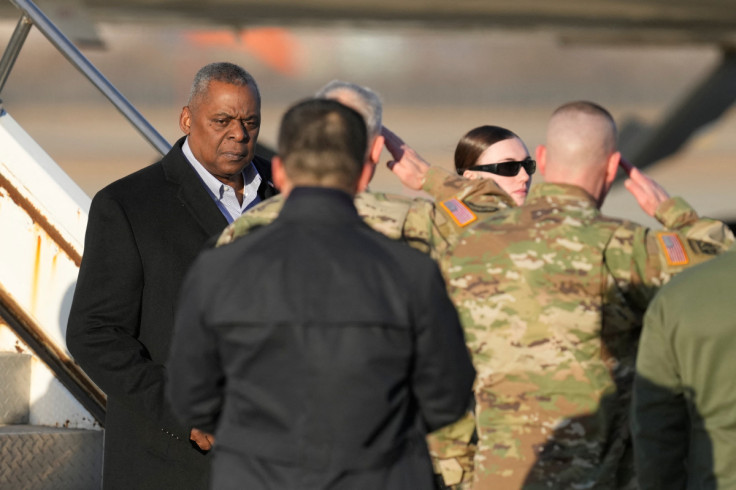North Korea Nuclear Threats: US-South Korea To Beef Up Joint Drills Amid Provocations
KEY POINTS
- Last year, North Korea declared itself an "irreversible" nuclear power
- In December, five North Korean drones crossed the demarcation line into Seoul's airspace
- Last year, Pyongyang also carried out several ICBM and other missile tests
As the threats of a nuclear war continue from North Korea, U.S. Defense Secretary Lloyd Austin and his South Korean counterpart committed to increasing joint drills and security cooperation in Seoul on Tuesday.
Last year, North Korea had declared itself an "irreversible" nuclear power, and carried out several intercontinental ballistic missiles (ICBM) and other missile tests almost every month.
Austin and South Korea's Defense Minister Lee Jong-sup agreed to "expand and bolster the level and scale" of joint military exercises amid the "continued provocations" from Pyongyang, the U.S. Department of Defense said in a statement.
However, it remains unclear when the drills will take place.
Austin and Lee also agreed to "further expand and strengthen the scale and level of combined exercises and drills this year," Lee said at a media briefing in Seoul.
"We will do a number of tabletop exercises to ensure that we're seeing things eye to eye," Austin said at the briefing.
Such military exercises have always been seen as a rehearsal for an invasion by Pyongyang, which usually responds with threats and drills.
In December, five North Korean surveillance drones had crossed the demarcation line into South Korean airspace, causing concerns over security. Seoul later confirmed one drone breached a special no-fly zone near the South Korean president's office.
"From a North Korean perspective, the drone incursion was highly successful," Rachel Minyoung Lee, a North Korea expert and senior analyst at the Open Nuclear Network in Vienna, told the Financial Times at the time. "They were able to test South Korea's military readiness, they were able to see how the South Koreans would respond and they provoked considerable anxiety and division."
Such a breach, before the December incident, had occurred in the South Korean airspace in 2017.
Austin's visit aims "to ease growing concerns among the South Korean public and politicians over whether the United States can be trusted in its extended deterrence against North Korea's nuclear threats," Hong Min of the Korea Institute for National Unification told AFP, according to France 24.
"With a detailed set of US assets agreed to be deployed for joint exercises, Washington seems eager to put to rest such concerns."

- NATO, Japan Pledge To Strengthen Ties In Face Of 'Historic' Security Threat
- Factbox-Chinese Chipmakers Caught In U.S.-China Tech Spat
© Copyright IBTimes 2025. All rights reserved.





















